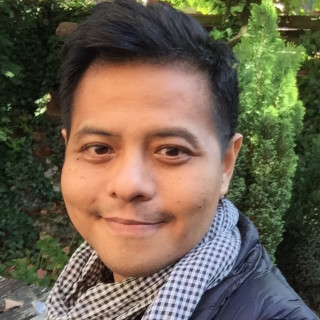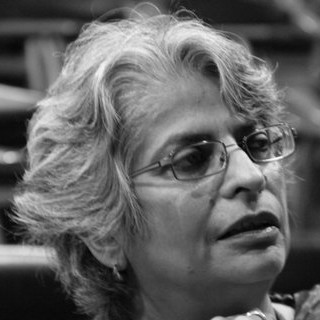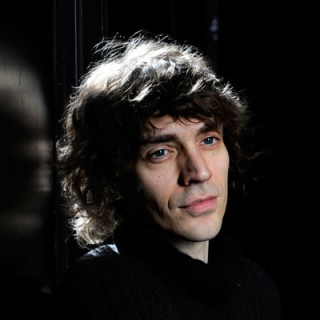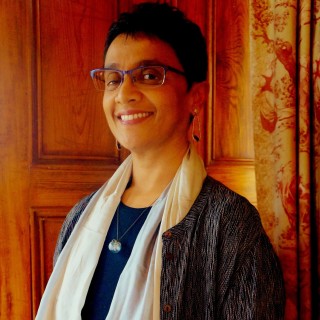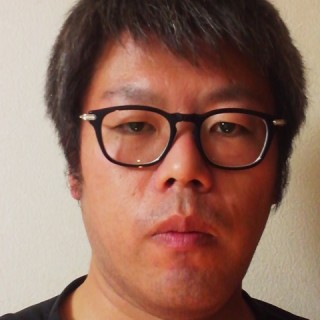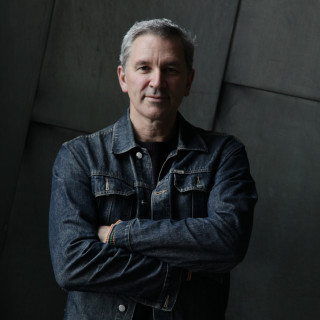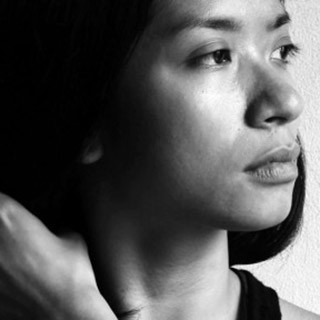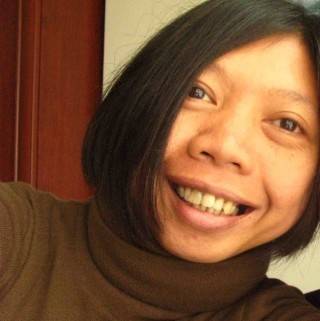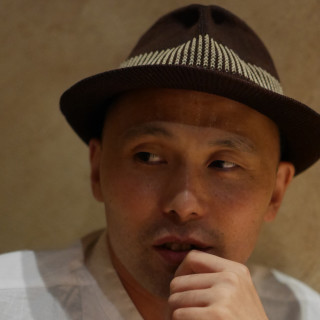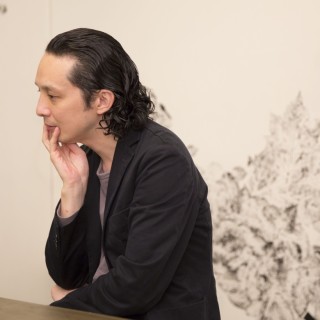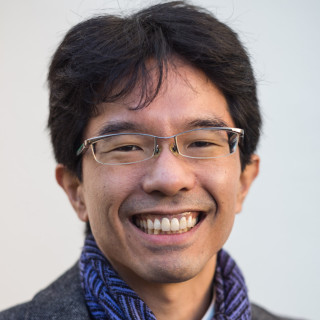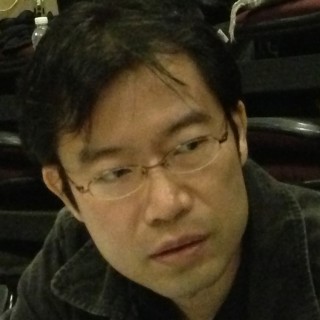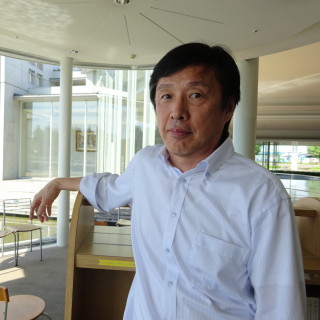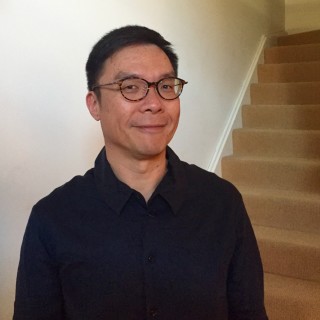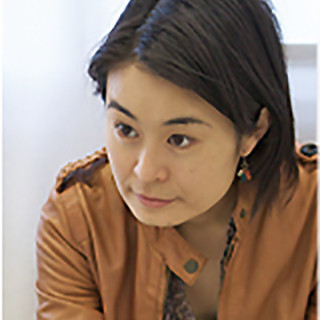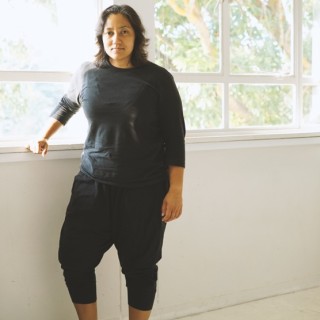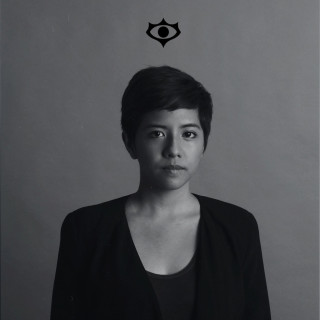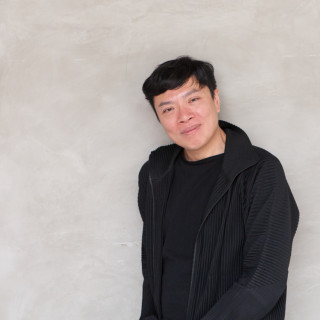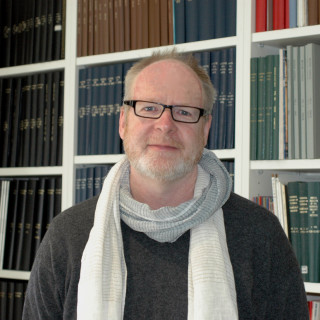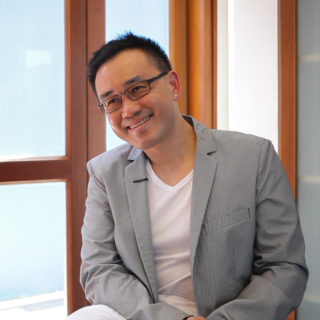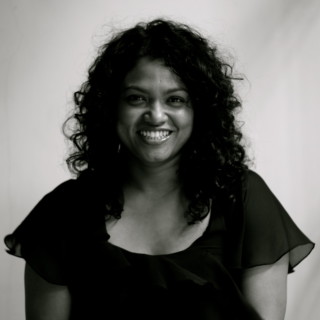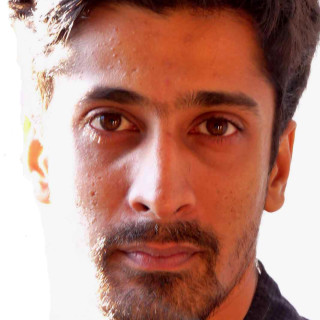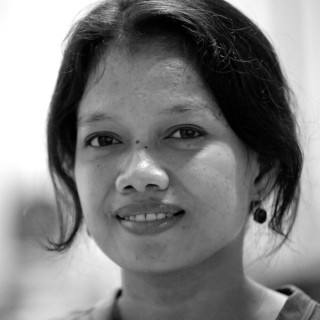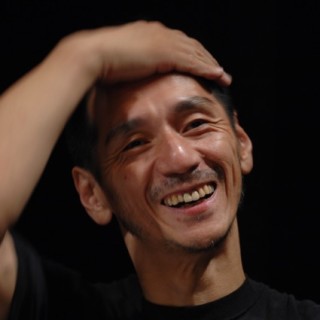
Asian Dramaturgs’ Network Meeting 2017
- 2.16 Thu
- 10:30-13:30ワーキング・グループ*Working Group*
- 14:00-15:30ディスカッション1Panel 1
- 16:00-17:00レクチャー1Lecture 1
- 2.17 Fri
- 10:30-12:30ラウンドテーブルRoundtable
- 14:00-16:00ディスカッション2Panel 2
- 16:30-18:30ディスカッション3Panel 3
- 2.18 Sat
- 10:30-11:30レクチャー2Lecture 2
- 12:30-13:30ディスカッション4Panel 4
- 14:30-16:00ディスカッション5Panel 5
- 16:30-17:30クロージング*Closing Remarks*
- Professional¥0
- Audience¥500
- *The Working Group and Closing Remarks are for ADN invitees only.
The Asian Dramaturgs’ Network (ADN) is a collective formed in 2016 to unite the region’s dramaturgical expertise and knowledge. ADN was founded by Malaysian performance-maker, dramaturg, and dance researcher Lim How Ngean. Held at TPAM 2017, ADN Meeting 2017 will further the dialogues and discussions started in April 2016 at the inaugural ADN symposium in Singapore. ADN Meeting 2017 is co-hosted by TPAM 2017 and Centre 42 (Singapore).
Co-hosted by Centre 42 and Performing Arts Meeting in Yokohama 2017 Executive CommitteeGrant: The Japan Foundation Asia Center
Contact: Asian Dramaturgs’ Network
Program
*See below for the speakers’ profiles
Working Group
• Facilitators: Ken Takiguchi, Lim How Ngean, Marion D’cruz, Ruhanie Perera, Sankar Venkateswaran
ADN invitees will discuss a number of issues that are central to the dramaturgical cause of the Network. ADN Director Lim How Ngean will deliver an Opening Address at the start of the session (for ADN invitees only).
Panel 1: Dramaturgies of Female Performance
• Moderator: Charlene Rajendran
• Speakers: Eisa Jocson, Natalie Hennedige, Ruhanie Perera, Shinta Febriany
This panel spotlights female artists presenting works which involve, cite or evoke female / woman / feminist politics. Their works present various aspects and perspectives on feminism and women’s politics in different contexts in Asia, utilising a range of performance media, from dance to film, from spoken text to song.
Lecture 1: Keynote Lecture by Ong Keng Sen
• Chair: Charlene Rajendran
• Speaker: Ong Keng Sen
ADN is proud to present a keynote lecture by Singaporean director Ong Keng Sen. Ong will unpack his dramaturgical methodologies and strategies throughout his illustrious theatre-making career which includes curation and programming.
Roundtable: Dramaturgy in Asia — Of Roots & Traditions
• Chair: Peter Eckersall
• Speakers: Anuradha Kapur, Charlene Rajendran, Kentaro Matsui, Marion D’cruz
This roundtable session addresses the issue of whether there is such a ‘thing’ or concept as Asian dramaturgy. More importantly, it hopes to juxtapose culturally-specific dramaturgical practices across transnational borders and regions such as India, Southeast Asia, and East Asia/Japan. The session also hopes to shed some light on the practice of dramaturgy and the dramaturg in history that may have eluded the formal (Western) definition.
Panel 2: Dance Dramaturgies — Body, Movement & Memory
• Moderator: Lim How Ngean
• Speakers: Daisuke Muto, Helly Minarti, Iina Naoto, Nanako Nakajima
This panel focuses on contemporary dance dramaturgies that shed light on the myriad processes ranging from conception to creation, highlighting dramaturgies of the body, movement and the body as repository of movement memory.
Panel 3: The Intercultural & The Interdisciplinary
• Moderator: Sankar Venkateswaran
• Speakers: Charlene Rajendran, David Pledger, Ken Takiguchi, Ness Roque
Definitions of intercultural and interdisciplinary performances continue to undergo shifts and reinvention. This panel sheds light on new intercultural territory and the issues that cross linguistic borders of translation and transliteration. It will also discuss rethinking the cultural and social norms and mores of interactive arts. The interdisciplinary takes on fresh meaning, from social media platforms that perform into material public spaces, to re-interpretations of festival curation.
Lecture 2: Southeast Asian Dramaturgies — Arco Renz & Contemporary Dance in Cambodia, Indonesia & Vietnam
• Chair: Lim How Ngean
• Speaker: Arco Renz
Choreographer Arco Renz will present a lecture on his experience working extensively in the region of Southeast Asia, both as choreographer and dramaturg. He sheds light on his work processes for developing dramaturgy, specific to artists in different socio-cultural and cultural practices.
Panel 4: Gendered / Queer Dramaturgies
• Moderator: Lim How Ngean
• Speakers: Alfian Sa’at, Gee Imaan Semmalar, Takao Kawaguchi
As performance of gender becomes even more diverse and multiplicitous, this panel hopes to showcase some current trends and frames of gender / queer dramaturgies across theatre and dance.
Panel 5: Japan in Dramaturgy
• Moderator: Ken Takiguchi
• Speakers: Kaku Nagashima, Ken Hagiwara, Peter Eckersall
This panel delves into the theory and practice of contemporary performance in Japan, with reference to current studies of dramaturgy in practice.
Closing Remarks
• Co-Chairs: Ken Takiguchi, Lim How Ngean, Robin Loon, Ruhanie Perera
ADN invitees are invited to a special wrap-up / feedback session (for ADN invitees only).
Profiles
*See above for each session
Alfian Sa’at (Singapore)
Alfian Sa’at is a Resident Playwright with Singapore theatre company W!lD Rice. He has been nominated 10 times for Best Original Script at the Life! Theatre Awards, winning in 2005 for Landmarks, in 2010 for Nadirah, in 2013 for Kakak Kau Punya Laki [Your Sister’s Husband] and in 2016 for Hotel (with Marcia Vanderstraaten). He has published several collections of plays, poetry, short stories, and flash fiction, including the play Cooling-Off Day.
Anuradha Kapur (India)
Anuradha Kapur is an academic and a theatre practitioner. She was Professor of Acting and Direction, and Director of the National School of Drama, New Delhi until 2013. She has since continued teaching in universities in India and abroad. She has written widely on theatre, including a book titled Actors Pilgrims Kings and Gods: the Ramlila at Ramnagar. She is a co-founder of theatre group Vivadi. Her theatre work has been cross-disciplinary and collaboratory, and has travelled internationally. In 2004, she was awarded the Sangeet Natak Award for Direction, one of the highest awards for theatre-making in India.
Arco Renz (Germany)
Arco Renz is a choreographer, dancer, and founder of Kobalt Works, an organisation which produces transcultural and multidisciplinary arts projects. His work revolves around Abstract Dramaturgy, a radical, structural and choreographic confrontation of the individual and the body with time and space. Recent works include collaborations with partners in Southeast Asia, such as CRACK (2011), solid.states (2012), and, in 2014 and 2015, KRIS IS, Hanoi Stardust, COKE, and ALPHA. A solo work, EAST (2015), transposes the ensemble processes from his work in Southeast Asia onto his own body. He also teaches dance and choreography in many institutions worldwide.
Charlene Rajendran (Singapore)
Charlene Rajendran is a theatre educator, researcher and practitioner who currently works at the National Institute of Education, Nanyang Technological University, Singapore. She researches issues of contemporary performance, identity and culture in urban multicultural contexts, and develops arts-based dialogic pedagogies that draw on contextually-based knowledges to deepen critical and aesthetic thinking. She has also been a theatre director, performer and writer. More recently, she has been a dramaturg in performance projects such as It Won’t Be Too Long – The Cemetery (2015, Drama Box).
Daisuke Muto (Japan)
Daisuke Muto is an independent dance critic and Associate Professor of Gunma Prefectural Women’s University, Japan. His current research interests are modern and contemporary Asian dance history, and alternative theory of choreography. His scholarly publications include book chapters in Choreography and Corporeality: Relay in Motion and History of Ballet and Dance (Japanese). As a dance critic, he has contributed many articles to magazines and newspapers since 2000. He has premiered his own choreographic work Surely It Comes About in 2013, and participated as a dramaturg in STAY or GO by Jecko Siompo, premiered in Yokohama in 2014.
David Pledger (Australia)
David Pledger is a contemporary artist and curator working within and between the performing, visual and media arts in Australia, Asia and Europe. His work is notable for engaging publics in productive and provocative ways. From his initial practice, live performance, he has developed a cross-disciplinary dramaturgy in which a central platform is engaging with artists across artforms and experts from social, scientific and academic fields. In 1995, he co-founded not yet it’s difficult (NYID), one of Australia’s leading interdisciplinary arts companies. He is regularly published in online and print journals such as The Conversation and Arts Hub.
Eisa Jocson (Philippines)
Born in the Philippines. Trained as a visual artist, with a background in ballet, she won her first pole-dancing competition in Manila in 2010, and started pole “tagging” and other public interventions in various cities. Under successive residencies in Belgium, Eisa developed an artistic praxis that questions the stereotype and context of the female pole dancer. Her solo Death of the Pole Dancer (commissioned by In Transit Festival 2011 in Haus der Kulturen der Welt, Berlin) toured across the world. As a 2014 Visiting Fellow of The Saison Foundation, she conducted her research in Japan and presented HOST at TPAM in Yokohama 2015 as a work-in-progress. The work was world premiered at Tanzhaus-nrw Dusseldorf in May 2015.
Gee Imaan Semmalar (India)
Gee Imaan Semmalar is a trans activist, writer, theatre artist and filmmaker. He completed his postgraduate studies in Arts and Aesthetics from Jawaharlal Nehru University, New Delhi. Interested in using theatre of the oppressed to bring social change around various issues, he co-founded Panmai Theatre group in 2014. The debut production of Panmai Theatre, Colour of Trans 2.0, which was devised by the founders based on their own lives as trans people, toured Philadelphia, New York, Boston, Chennai, Bangalore, Kerala and Karnataka in 2015.
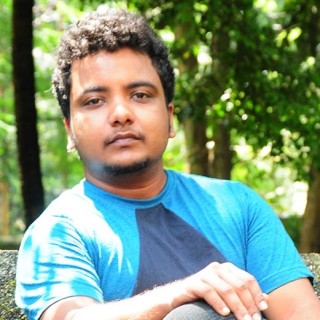
Helly Minarti (Indonesia)
Helly Minarti is an independent dance curator and researcher based in Jakarta. In 2014, she received her PhD in Dance Studies from the University of Roehampton, UK. Her research interests include (global) discourse on modernities, cultural policy/politics in an Asian context, and issues on contemporaneity and certain artistic/choreographic practices within an Indonesian historical context. From 2013 to 2015, she was the Head of Programme for the Jakarta Arts Council (JAC). She served as a curator on projects such as the Asia-Europe Dance Forum in Berlin (2004), the Asia-Europe Artists Exchange in South Korea (2006), and the Indonesian Dance Festival (2014).
Iina Naoto (Japan)
Iina Naoto’s work covers a wide range from video artist to theatre director, dramaturg and producer. As video artist, he has worked for The Spirit Play and King Lear, both directed by Sato Makoto, and Kawguchi Takao’s a perfect life, and as dramaturg for Kawaguchi’s About Kazuo Ohno. He has directed multi-disciplinary works such as ASYL and Shinobazu no Onna. He established Dance and Media Japan to produce projects combining media technology with dance. He also teaches at Tokyo Zokei University (cinema and performance), Kyoto Seika University (visual theatre performance), and Za-Koenji / Creative Theatre Academy (visual direction for theatre).
Kaku Nagashima (Japan)
Kaku Nagashima is one of the pioneering dramaturgs in Japan, collaborating with many theatre directors and companies. He also translated plays by contemporary, modern and classical authors including Samuel Beckett, Sarah Kane, Jon Fosse, Alan Harris, William Shakespeare and Henrik Ibsen. He is a member of Japanese theatre company Shigeki Nakano + Frankens. He teaches at Tokyo University of the Arts, ZA-KOENJI / Creative Theatre Academy and Aichi University.
Ken Hagiwara (Japan)
Ken Hagiwara is professor at the School of Global Japanese Studies, Meiji University in Tokyo, Japan. He is an expert on the history of modern and contemporary performing arts in Japan and Germany. Ken has published articles in books such as Sano Seki, Hito to Shigoto 1905-1966 [Seki Sano, The Person and the Works 1905-1966], Stage-Show no Jidai [The Era of Stage-Show], and Murayama Tomoyoshi, Gekiteki Sentan [Tomoyoshi Murayama, A Dramatic Extreme]. Ken also translates German plays into Japanese, such as in norway.today by Igor Bauersima.
Ken Takiguchi (Singapore)
Ken Takiguchi is a research fellow at the Theatre Studies Programme, Department of English Language and Literature, National University of Singapore. He obtained his PhD in Japanese Studies from National University of Singapore, specialising in theatre translations, intercultural theatre and cultural policy. Ken also works in theatre as a dramaturg, translator and producer. He has participated in numerous intercultural productions, such as Spring in Kuala Lumpur (2004), Reservoir (2008), Mobile 2: Flat Cities (2013), and Hotel (2015).
Kentaro Matsui (Japan)
Kentaro Matsui is the Director of the Cultural Centre of Fujimi City located in Saitama Prefecture next to Tokyo. He also works as a theatre producer, critic and dramaturg. From 1981 to 1996, Kentaro was a member of the Black Tent Theatre company, one of leading companies in the Japanese Underground theatre movement established in the late 1960’s. He was involved in the planning process of Setagaya Public Theatre in Setagaya ward, Tokyo city, from 1990 to 1996. When the theatre opened in 1997, he became its Chief Dramaturg and Program Director for 11 years.
Lim How Ngean (Malaysia/Australia)
Lim How Ngean is a performance-maker, dramaturg and dance researcher, as well as the founding director of the Asian Dramaturgs’ Network. In 2014, he received his PhD from the National University of Singapore for his research on contemporary dance choreography in Southeast Asia. In recent years, he has served as dramaturg for dance performances at the Singapore Arts Festival and Esplanade – Theatres on the Bay. He has dramaturged for critically-acclaimed choreographers and dance groups, such as the Amrita Performing Arts Group (Cambodia), Daniel Kok (Singapore), Kuik Swee Boon (Singapore), Ming Poon (Singapore), and Pichet Klunchen (Thailand).
Marion D’cruz (Malaysia)
Marion D’Cruz choreographs, performs, produces and teaches full-time at the Dance Faculty of ASWARA (The National Academy of Arts, Culture and Heritage, Malaysia). She is a pioneer of contemporary dance in Malaysia, and a founding member of the Five Arts Centre (est. 1984). In 1983, she formed a company Marion D’Cruz and Dancers who have performed extensively locally and internationally. Marion was manager of Arts Network Asia from 2004 to 2006. At the Boh Cameronian Arts Awards, Marion was awarded the Cross-Cultural Champion of the Arts Award in 2006, and honoured as an Arts Legend in 2015.
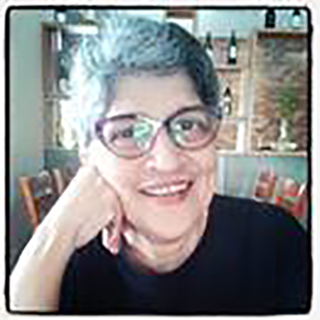
Nanako Nakajima (Japan)
Nanako Nakajima is a scholar, dance dramaturg, and certified traditional Japanese dance master. She currently teaches at Aichi University, Japan, and is also a Research Fellow at Free University Berlin. Her recent dramaturgical works include Osamu Jareo’s Theater Thikwa plus Junkan Project (2008-2011, 2012), and Archiving Dance, Dance Marathon: OPEN WITH A PUNK SPIRIT! Archive Box (2014, 2015). Her writings on dance dramaturgy have been published in scholarly books and journals.
Natalie Hennedige (Singapore)
Natalie Hennedige is the Artistic Director of Cake Theatrical Productions, a contemporary performance company based in Singapore. Natalie conceptualises, writes and directs works in theatre and other media. Constantly collaborating with artists from across disciplines such as visual arts, film and video, performance art and dance, Natalie engineers contemporary works that are artistically adventurous and that defy classification, playing at conventional performance venues, unusual spaces of creative experimentation and in public spaces to create performance-based experiences.
Ness Roque (Philippines)
Ness Roque is a theatre and film actress, performance-maker, writer, dramaturg, and artist-manager. She is also a core member of Manila-based contemporary performance collective Sipat Lawin Ensemble. Trained primarily as a stage actress, she is in search of how to move towards new articulations of acting in current forms of performance-making. She has been exploring dramaturgy with Sipat Lawin in Una Sola Demostracion Dela Mujer (2014) and Gobyerno (2015-2016); with sonic artist Teresa Barrozo in We Are What Movies Told Us We Should Be (2016); and with the National Commission for Culture and Arts for Lihka-LakBayan (2016).
Ong Keng Sen (Singapore)
Ong Keng Sen is the Festival Director of the Singapore International Festival of Arts (SIFA). His works have been presented to much acclaim all over the world. He is the first Singapore artist to have received both the National Arts Council Young Artist Award (1992) and the Cultural Medallion (2003). He holds a Masters in Performance Studies (Intercultural Performance) from Tisch School of the Arts, New York University and was also an Adjunct Professor with the National University of Singapore, where he started the theatre studies programme in 1992.
Peter Eckersall (USA)
Peter Eckersall is Professor of Theatre and Performance Studies and Executive Officer of the PhD Program in Theatre at the Graduate Centre, City University of New York. He serves as the Vice President of Performance Studies international (PSi) and is also the dramaturg for Australian arts company not yet it’s difficult (NYID). He works on contemporary performance practices in Australasia and Europe, with particular interests in Japanese performance and on dramaturgy. His latest book, authored with Helena Grehan and Edward Scheer and titled New Media Dramaturgy: Performance Media and New Materialism, will be published by Palgrave in early 2017.
Robin Loon (Singapore)
Robin Loon is a dramaturg, academic and playwright. He currently teaches the Introduction to Theatre & Performance module as well as modules in Singapore English Language Theatre and Theatre Criticism at the Theatre Studies Programme, National University of Singapore. As a dramaturg, he has worked on many projects with the Singapore Arts Festival, and on productions such as Casting Back (2012) and 男男自语 (2012). At arts organisation Centre 42, which he co-founded in 2014, he also heads Singapore’s first Dramaturg Apprenticeship Programme.
Ruhanie Perrera (Sri Lanka)
Ruhanie Perera is a performer, performance-maker and lecturer. She is founding director of Floating Space Theatre Company, and a visiting lecturer in performance and literature at the Department of English, University of Colombo, Sri Lanka. She holds an MA in Performance and Culture: Interdisciplinary Approaches from Goldsmiths, London, and her research has addressed storytelling cultures, performative acts and identities and cultural memory. Her recent work as a performer includes Inscribing Her (2013) and Forgetting November (2015). She also works as a curator in visual arts projects such as the Colombo Art Biennale (2014) and the ‘Sacred Cities’ project (2015/16).
Sankar Venkateswaran (India)
Sankar Venkateswaran is a theatre dramaturg, director, producer, actor and composer. He is a graduate of the Calicut University School of Drama & Fine Arts, Kerala, specialising in theatre direction, and the Theatre Training and Research Programme (now Intercultural Theatre Institute), Singapore. In 2007, he founded contemporary theatre company Theatre Roots & Wings. His recent directorial works include Guruthillathe Nadatha Galike (2013) and Samuel Beckett’s The Lost Ones (2014). He was the Artistic Director for the International Theatre Festival of Kerala in 2015 and 2016, and has conducted workshops for institutions and theatre/dance companies in India, Japan and Sri Lanka.
Shinta Febriany (Indonesia)
Shinta Febriany is Artistic Director of Indonesian theatre company Kala Theatre. She works as a director, playwright, and performer. She has directed over 20 plays, mostly her own scripts, which explore gender relations and body issues. Also a poet and essayist, she has been the curator for the Makassar International Writers Festival since 2012. Her most recent research project is titled Bissu: Embodiment in a Cultural Performance for an MA in Performance Studies at University of Gadjah Mada, Yogyakarta. In 2007, she received the Celebes Award from the Government of South Sulawesi for her dedication to theatre and stage performance.
Takao Kawaguchi (Japan)
Takao Kawaguchi is a multimedia performance artist and dancer based in Tokyo. With his body as a medium of expression, he has collaborated with multimedia artists, including Atsuhiro Itoh in Diquenoves (Say You Don’t See) (2003 & 2006), Fuyuki Yamakawa in D.D.D. — How may more times will my heart beat before it stops? (2004-2007), and Daito Manabe in TABLEMIND (2006 & 2011). Although never formally trained in Butoh, he was inspired to emulate the late founders of the dance form, Tatsumi Hijikata and Kazuo Ohno, in The Ailing Dance Mistress (2012) and About Kazuo Ohno (2013) respectively.

